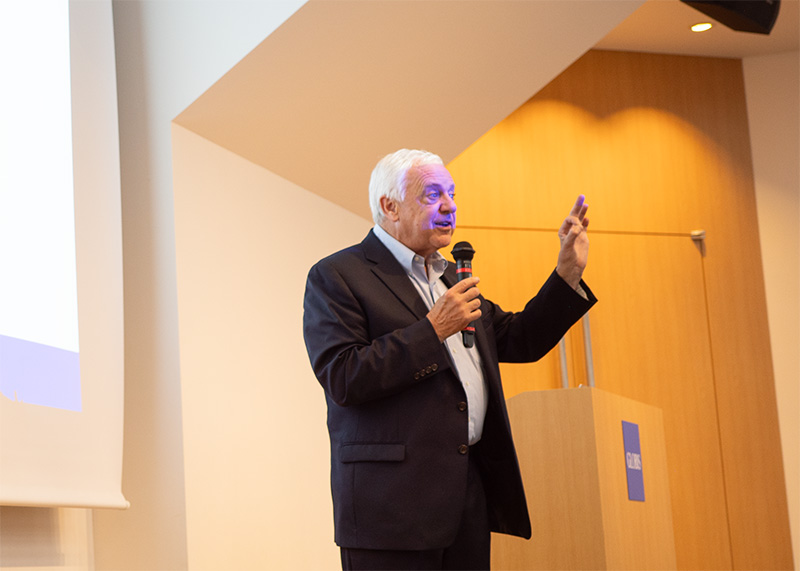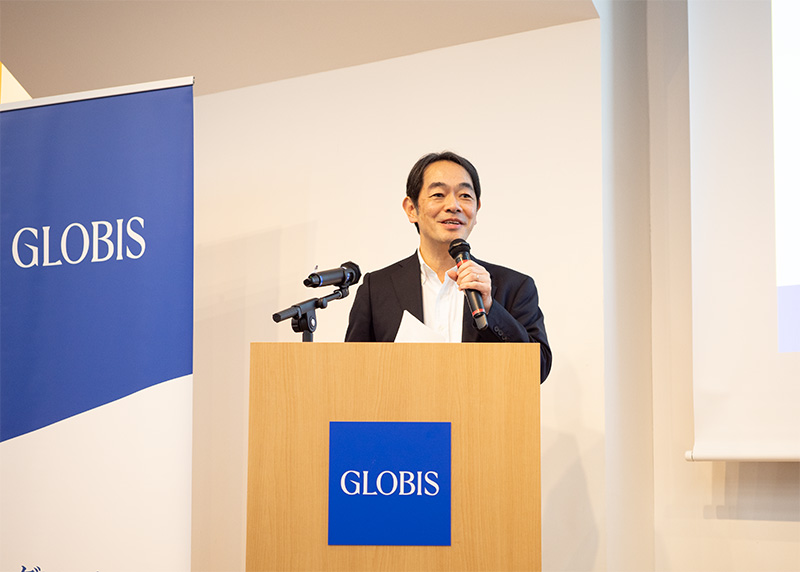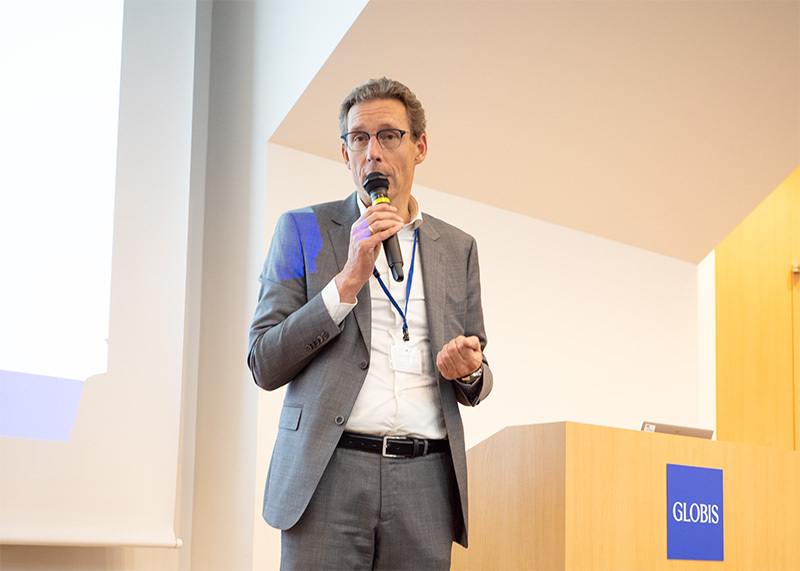Faced with global uncertainty, the partnership between Japan and the Netherlands offers a new model where co-creating solutions is more valuable than simply accessing markets.
The true strength of a global business partnership is revealed by its ability to evolve under pressure. At the DUJAT Showcase Tokyo 2025, hosted by GLOBIS University, Dutch and Japanese leaders gathered not just to commemorate a 420-year relationship, but to fundamentally rethink its future. The event underscored a deliberate pivot from mere transactions to joint innovation.
With over 800 Japanese firms operating in the Netherlands, this partnership has long been a vital strategic link. But the executives, policymakers, and educators in attendance were clear-eyed: in an era defined by energy transformation, technological disruption, and geopolitical turbulence, trade alone is no longer enough.
Their shared challenge was to answer a critical question: how could this collaboration become a force for purposeful, practical action?
Luc Houben, chairman of DUJAT—the Dutch-Japan Trade Federation—opened the event emphasizing practical support as the cornerstone of his organization.
“We provide a network for Japanese companies investing in the Netherlands. We bring them together. We help them,” Houben explained. Noting that the Netherlands remains a key European base for many of Japan’s top corporations, he highlighted DUJAT’s critical role as a facilitator.
International experience, he argued, could be ‘enriching, fascinating, wonderful,’ and he advised young students from Japan to live and work abroad for the broader perspectives—and better compensation—they offer.

Sven Van Stichel, COO of GLOBIS Europe, brought a sharper leadership lens to the discussion. He recounted how GLOBIS grew from a single marketing class in a tiny Shibuya apartment, funded with just $8,000 in 1992, into Japan’s largest business school, now offering a suite of MBA programs, executive education, and venture capital investment.
Van Stichel was blunt about the world future leaders must navigate, one he defined by the military acronym VUCA—increasingly volatile, uncertain, complex, and ambiguous.
“How do we survive in this VUCA time?” he asked.
The GLOBIS response is the principle of kokorozashi, which he described as “a strong belief that if you find your personal mission in life, you can achieve great things.” Crucially, he emphasized that kokorozashi is not self-serving or short-term; it is a purpose focused on creating lasting societal impact.
He offered examples from GLOBIS alumni: an engineer-doctor bringing healthcare innovation to Silicon Valley; a professional who joined a startup empowering working mothers; and another building intercultural connections. Each story illustrated how a clearly defined purpose can serve as a compass in times of turmoil.
“We try to prepare our students with a strong kokorozashi, but also knowledge about what’s going on and how to leverage it,” he explained, directly linking clarity of purpose to organizational resilience.
Edo de Ronde, Executive Director of the Netherlands Foreign Investment Agency (NFIA) in Japan, laid out the sheer scale of Japanese investment. These companies employ nearly one-fifth of the Dutch working population, contribute significantly to GDP, and account for a third of the nation’s R&D spending.
Yet de Ronde avoided a simple sales pitch. He candidly described the current business climate as challenging. “We have a labor market shortage, a lack of housing and space, and the cost is rising. Also, we have nitrogen challenges.” Instead of glossing over these problems, the NFIA’s strategy is now to explicitly invite Japanese partners to help solve them.
This new approach is reflected in the Netherlands’ priority sectors—energy transition, circular economy, life sciences, and digital technology—which are closely aligned with the EU’s broader sustainability goals. Success stories already exist, from Fujitsu’s quantum research with QuTech to Sekisui’s solar film innovations.
The message was pragmatic: Europe’s doors are open, but you should come ready to co-create solutions, not just access a market.
Hideaki Takase, former president of MUFG Bank Europe, offered a personal perspective on MUFG’s decision to locate its European headquarters in Amsterdam. While the subsidiary was established in 1972, the bank reorganized its European operations from Amsterdam in 2018, managing 600 staff across seven countries from the city.
The choice wasn’t purely market-driven. The widespread use of English, transparent regulation from the Dutch central bank, and a general openness to international firms were major factors. Takase did not shy away from the hurdles, noting that Dutch financial sector compensation rules can complicate international recruitment and that managing diverse regulatory frameworks remains demanding.
Still, he emphasized the profound, if intangible, benefits of the location: the friendly people, strong support networks, and excellent connectivity. “I truly love this country,” Takase said.

This sentiment was echoed across various industries represented at the showcase, from executive search and legal services to construction and creative agencies. Companies like Loyens & Loeff, with 40 years of supporting Japanese firms in European mergers, and Daiwa House, adapting Japanese modular construction to address Europe’s housing crisis, demonstrated how cross-border collaboration extends far beyond financial services into practical problem-solving across sectors.
In his closing remarks, Tjapko Poppens, Mayor of Amstelveen, brought the focus back to the people. Economic opportunities are vital, he argued, but lasting success depends on creating an environment where international employees and their families feel genuinely at home. This requires more than just good jobs; it demands strong community integration and authentic cross-cultural connections.
“A society where you know your neighbors is one of the important qualities we have in the Netherlands,” he explained, stressing that this spirit of community is what ultimately sustains an enduring partnership.
In his closing words, Poppens captured the event’s essential theme: successful international collaborations depend fundamentally on shared values, purpose-driven leadership, and authentic community engagement.

The DUJAT Showcase in Tokyo made one thing abundantly clear: the future of successful global collaboration is less about deal-making and more about strategic alignment, genuine partnership, and a powerful clarity of purpose.
In a turbulent world, future-proofing a global business requires deeper integration, purpose-driven leadership, and a clear-eyed approach to real-world complexities. The lesson from the Netherlands and Japan is a simple but powerful one: trade may open the door, but it is trust—built on a shared vision for the future—that ensures it remains open for generations to come.
Every organization's needs are different. With our global learning options, we're ready to help you find the right program to achieve your talent development goals.